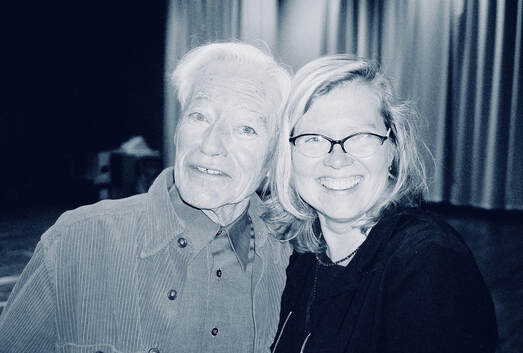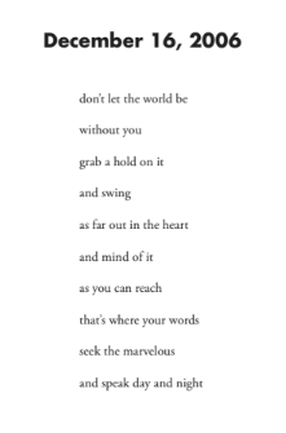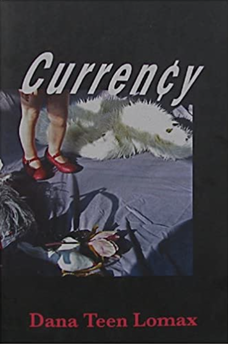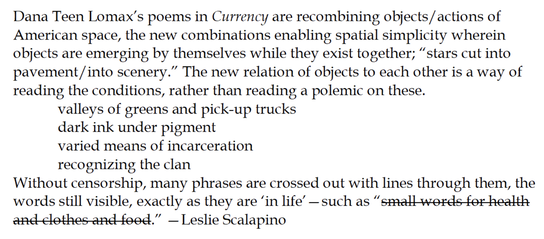Press & Book Reviews
THE BEAUTIFUL: Poets Reimagine a Nation (Gualala Arts, 2022)
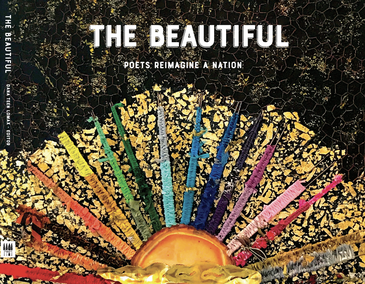
This is an untraditional offering, and entries range widely in type and scope; the collective effect is both peripatetic and profound. An optimistic, wise collection that offers the pleasures of discovery. Kirkus Reviews
Kindergarde: Avant-garde Poems, Plays, Stories, and Songs for Children (Black Radish Books, 2013)
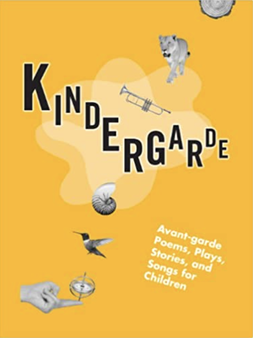
A collection of original prose and poetry that ranges from thoughtful to provocative and from experimental to really far-out. Adventurous writings for literary risk-takers and thrill-seekers. Kirkus Review
Poetry for the young or young at heart. Poetry Foundation
The title suggests that the book is “for children” and while they can certainly enjoy the contents, this collection also serves as a valuable teaching tool for educators. Because it contains some of the most active and interesting poets writing today, it also serves as an engaging anthology for writers, especially those who like to play with language in the vein of the Surrealists and Dadaists.
Rain Taxi by Megan Burns
Rain Taxi by Megan Burns
Kindergarde—in addition to being the first winning anthology in the history of the award—breaks away from the infoverse of the “for school” market and escapes the stranglehold of “old guard” Romantic verse of innocence, nature, and naïve children cavorting through sunshiny summer days. Unlike the usual children’s anthologies of old favorites recycled into new groupings, Kindergarde includes new and reprinted works by accomplished, contemporary poets who typically haven’t designated their work as belonging to the “for children” market. -- "Old Guard → Avant-Garde → Kindergarde: The 2014 Lion and the Unicorn Award for Excellence in North American Poetry" by Lissa Paul, Donelle Ruwe, Craig Svonkin

Disclosure
(Black Radish Books, 2011)

É como se o livro fosse em primeira pessoa, confessional e intimista, porém feito com uma frieza que chega a ser assustadora, pois mostra o quando é fria, distante e impessoal a relação das instituições com o indivíduo.
Através das várias cartas de recusa de emprego que há no livro, por exemplo, vê- se o quando a autora penou. Mas não se vê drama nisto, pois o foco está nas instituições que lhe mandaram essas cartas, e não no drama profissional de Lomax: o que se percebe é o cinismo dos textos de recusa e como para essas instituições, a autora não tem a menor importância, ela é apenas uma candidata, um número, uma estatística.
Aliás, vendo o livro todo, a sensação é essa: não é a biografia de uma pessoa, já que o livro não parte do “eu”, mas sim a biografia de um nome que se adequa a listas, a números e a estatísticas institucionais, já que o livro parte de como as instituições reconhecem e entram em contato com a autora. É realmente assustador pensar em si mesmo por esse ponto de vista: sou apenas um contribuinte, um empregado, um condutor de veículos, um paciente, um... Sim, é daqueles trabalhos que a gente fica com vontade de fazer também. Não dá pra copiar a ideia da Dana, óbvio que não. Mas dá pra olhar com outros olhos a gaveta de papeis que todo mundo tem. Ela é tão romântica quanto uma frase que começa com “Eu...”. by Fabio Morais
***********************************
Google Translate from the Portuguese:
It is as if the book is in the first person, confessional and intimate, but done with a coldness that becomes frightening, because it shows how cold, distant and impersonal the relationship of institutions with the individual is. Through the various letters of refusal in the book, for example, one sees the one when the author has pened. But there is no drama in this, for the focus is on the institutions that sent her these letters, and not on the professional drama of Lomax: what is perceived is the cynicism of the texts of refusal and, as for these institutions, the author has not the least importance, she is only a candidate, a number, a statistic.
In fact, seeing the whole book, the sensation is this: it is not the biography of a person, since the book is not part of the "I", but the biography of a name that fits with lists, numbers and institutional statistics , since the book starts with how the institutions recognize and contact the author. It's really scary to think of yourself from this point of view: I'm just a taxpayer, an employee, a driver of vehicles, a patient, a ... Yes, it's those jobs that we feel like doing too. You can not copy the idea of Dana, obviously not. But you can take a different look at the paper drawer that everyone has. She is as romantic as a phrase that begins with "I ...". Fabio Morais
Aliás, vendo o livro todo, a sensação é essa: não é a biografia de uma pessoa, já que o livro não parte do “eu”, mas sim a biografia de um nome que se adequa a listas, a números e a estatísticas institucionais, já que o livro parte de como as instituições reconhecem e entram em contato com a autora. É realmente assustador pensar em si mesmo por esse ponto de vista: sou apenas um contribuinte, um empregado, um condutor de veículos, um paciente, um... Sim, é daqueles trabalhos que a gente fica com vontade de fazer também. Não dá pra copiar a ideia da Dana, óbvio que não. Mas dá pra olhar com outros olhos a gaveta de papeis que todo mundo tem. Ela é tão romântica quanto uma frase que começa com “Eu...”. by Fabio Morais
***********************************
Google Translate from the Portuguese:
It is as if the book is in the first person, confessional and intimate, but done with a coldness that becomes frightening, because it shows how cold, distant and impersonal the relationship of institutions with the individual is. Through the various letters of refusal in the book, for example, one sees the one when the author has pened. But there is no drama in this, for the focus is on the institutions that sent her these letters, and not on the professional drama of Lomax: what is perceived is the cynicism of the texts of refusal and, as for these institutions, the author has not the least importance, she is only a candidate, a number, a statistic.
In fact, seeing the whole book, the sensation is this: it is not the biography of a person, since the book is not part of the "I", but the biography of a name that fits with lists, numbers and institutional statistics , since the book starts with how the institutions recognize and contact the author. It's really scary to think of yourself from this point of view: I'm just a taxpayer, an employee, a driver of vehicles, a patient, a ... Yes, it's those jobs that we feel like doing too. You can not copy the idea of Dana, obviously not. But you can take a different look at the paper drawer that everyone has. She is as romantic as a phrase that begins with "I ...". Fabio Morais
The Lomax piece, billed as “the most radically confessional work of poetry ever published,” is scarcely poetry at all and probably not strictly conceptual either, though surely “confessional” and appropriative. Working out of a current visual arts tradition of audacious personal revelation, Ms. Lomax here reprints as unvarnished images a wealth of personal documents including her teacher’s handwritten “pupil progress report” from elementary school, x-rays of her teeth, a credit card statement, and a solemn (if hilarious) letter dated 11-4-98 from some “adult village” informing Dana Teen that she was included in their prayers. For more of such selective appropriation, I’d gladly purchase her book. MAYDAY Magazine by Richard Kostelanetz
Here is what happened when I read Disclosure: First, I had to break a wax seal that tightly held down a bright red ribbon, that buttoned up the stark black cover, a cover with ‘Disclosure’ printed in shadowy ink.
Then, I had to figure out what the f*** was going on. The Chapbook Review by J.A. Tyler
Dana Teen Lomax shows her ass and makes you want to kiss it. Bear with me and I’ll explain:
I immediately fell in love with Lomax’s chap, DISCLOSURE, put out through the generously-spirited Dusie Kollektiv that is managed by the wise poet Susana Gardner (wise in part for allowing poetry to show its wide expanse). First, the way to enter this project yanks the reader immediately into its space, which is significant because, as my reading below indicates, the reader’s proactive presence is required to make this project mature. Galatea Resurrects by Eileen Tabios
I immediately fell in love with Lomax’s chap, DISCLOSURE, put out through the generously-spirited Dusie Kollektiv that is managed by the wise poet Susana Gardner (wise in part for allowing poetry to show its wide expanse). First, the way to enter this project yanks the reader immediately into its space, which is significant because, as my reading below indicates, the reader’s proactive presence is required to make this project mature. Galatea Resurrects by Eileen Tabios
Disclosure is by far one of the most interesting books I have ever read. It should perhaps be called “Full Disclosure,” as Lomax presents us with so many fragments from various areas of her life. New Pages by Aimee Nicole
Letters To Poets: Conversations about Poetics, Politics, and Community
(Saturnalia Press, 2008, co-edited with Jennifer Firestone)
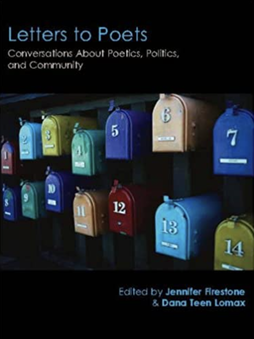
The poets included in this book, younger and older, established or emerging can collectively play the part of mentor, ambassador, comrade in arms. If you make the choice to be a poet, they say, here's what you need to know. These are the things you WILL encounter. Here are some possible strategies to navigate this world and some great bits of wisdom; you will need them.
Ridiculous Human Things by Lindsay Boldt
What a gift to have the art of letter writing preserved into our current century. I’m still fond of the letters of John Keats, but they don’t have the kind of immediacy and relevance to my present life I find in the letters in Letters to Poets: Conversations about Poetics, Politics, and Community. Galatea Resurrects by Kristin Berkey-Abbott
Curren¢y
(Palm Press, 2007)
"My voice" no metaphor. Form and displacement. Someone is mapping loss here. Complicit, shattering, reach up "inside of the dollar," and see what you find. This Currency is about someone you already know. —Norma Cole
Dana Teen Lomax's work navigates the vexed relations of life behind the bars of the $$, where gender, race, and class are not merely "discourses" but lived vectors of experience, and where the logic of exchange value mediates that experience to the point where "the $u$pen$e i$ in the death toll$." CURRENCY is nothing less than an oppositional archeology of consumer culture as it reproduces its logics on and in our bodies--both personal and body-political--against a field of possibilities increasingly threatened by the privatization and colonization of the life-world. Writing a radical biopolitics--a "biopoethics"--would be that practice that articulates itself in resistant song, and, that in Lomax's expanded field, of necessity also dances, in paroxysms full of both rage and desire.
—David Buuck
